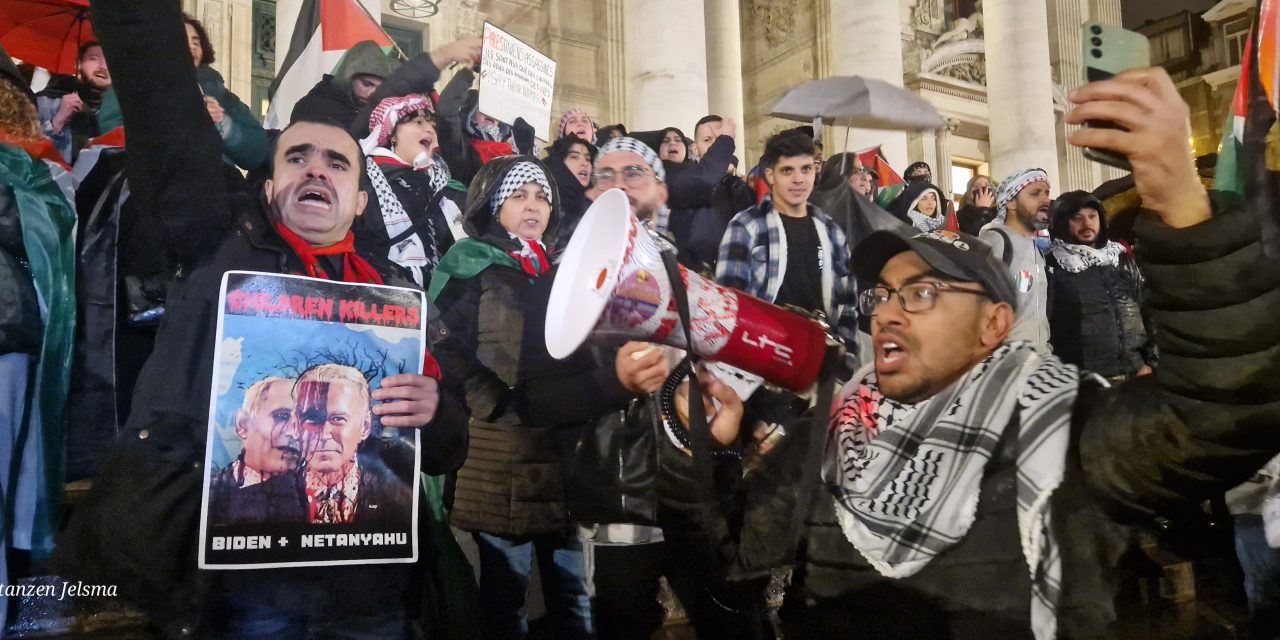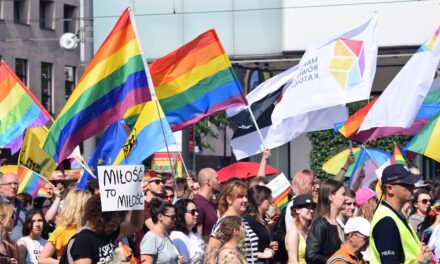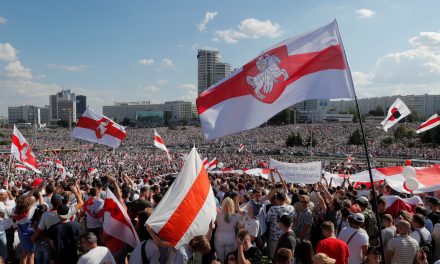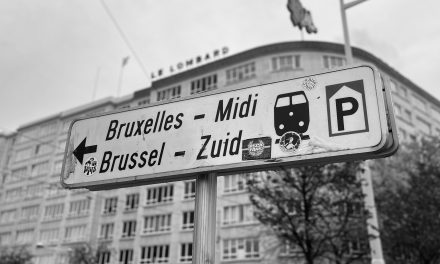Brussles: An unexpected flare-up of the Israeli-Palestine conflict by Hamas’s militant wing Izz al-Din al-Qassam Brigades (IQB) occurred on October 7th. Hamas attacked an open-air music festival and fired approximately 5,000 rockets towards Israeli territory. This intense offensive resulted in 1,200 deaths and over 240 hostages. In this conflict, the reaction and perspective of the European leaders underwent a notable shift. Transitioning from diplomatic support for Palestinian self-determination, as outlined in the Oslo Accords, to the right of Israel to defend itself.
In response, the Israeli military says it has struck at least 12,000 targets across Gaza. This intense bombing campaign resulted in at least 11.000 deaths, including 5.000 children. Thousands more are missing or entombed under the rubble. The rest of the approximately 2.3 million residents of the Gaza Strip have been replaced and are moving in masses to the south. The disproportionate Israeli response prompted widespread ‘pro-Palestinian’ demonstrations across Europe. Initially, these gatherings were not allowed, especially in France and Germany. The French government even banned pro-Palestinian demonstrations because, as French Interior Minister Gerald Darmanin stated; “It would generate disturbance to the public order”. The German government has been unshakable in its support for Israel. The fear of anti-Semitic flare-ups and the clear anti-immigration points of Olaf Scholz ultimately led to the decision to ban these demonstrations.
Dr Peter Malcontent, a specialist in the Israel-Palestine conflict, clarifies the European leaders’ response: “European foreign policy is intergovernmental, before adopting a ‘European stance,’ an agreement among the 27 member states is crucial. Historical divisions about this conflict make a unified statement nearly impossible. Furthermore, the European Union argues that “we must all agree, otherwise it’s futile.” This restraint has contributed to a non-assertive response from the EU. If an agreement is reached, economic sanctions and terminating the association agreement could influence Israel. However, implementation is delayed due to this measure’s one-time use. These tools might be considered if West Bank violence and Israeli human rights violations persist. Aside, before October 7, rising anti-Semitism and the lingering trauma of World War II influenced European sentiments”.
The curtailing of expressions of support for Palestinians across Europe has raised alarms for human rights groups. As Jean-Claude Samouiller, President of Amnesty International France, stated; Under international law, a ban on demonstrations can only be considered as a last resort. Authorities should always seek to protect and facilitate the rights to freedom of expression and peaceful assembly in the first place”. Precisely based on this right to assemble, the municipality of Brussels permits a daily Pro-Palestinian demonstration. Since the bombing of the Al-Ahli Arab Hospital on October 17th, around 300 people have been gathering every night from 19:00-20:00 in front of the Beurs of Brussels.
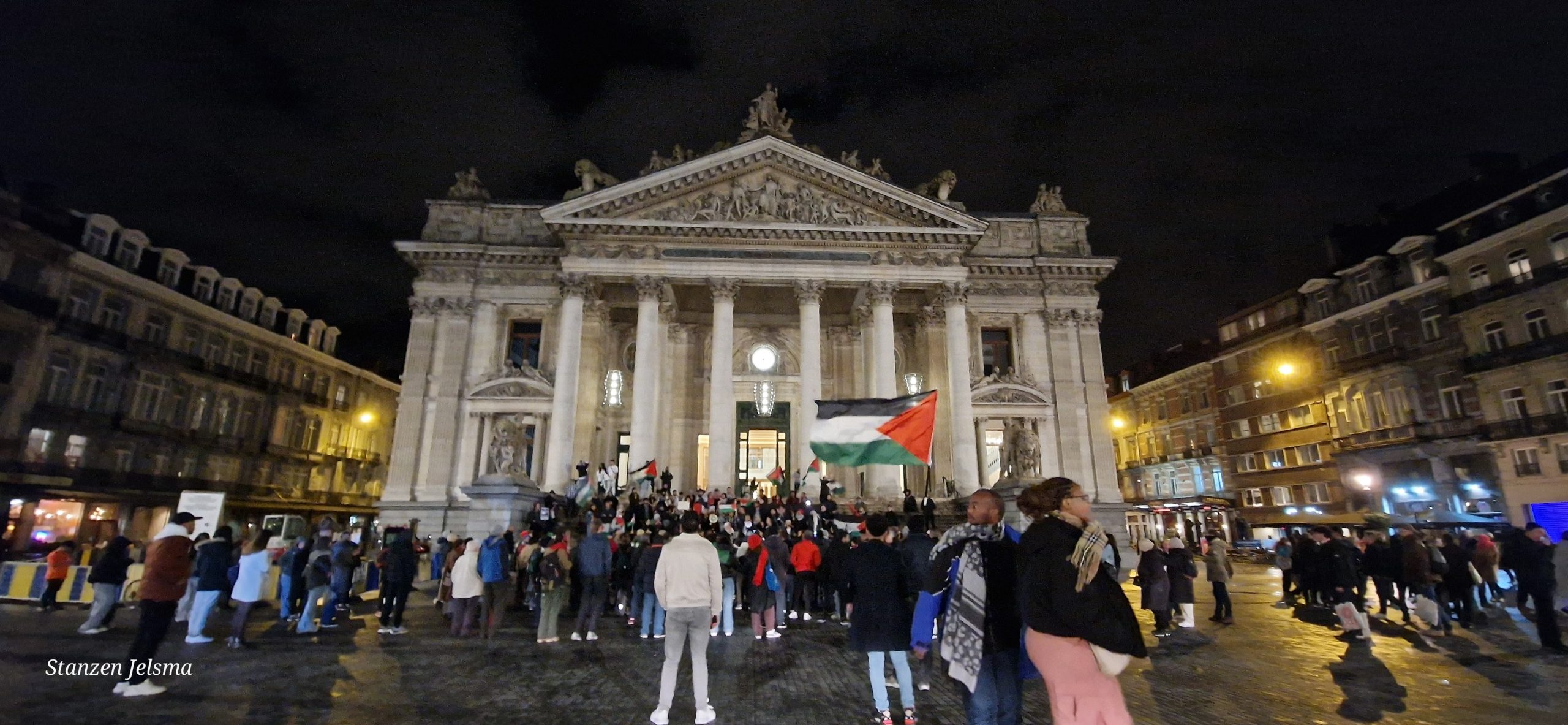
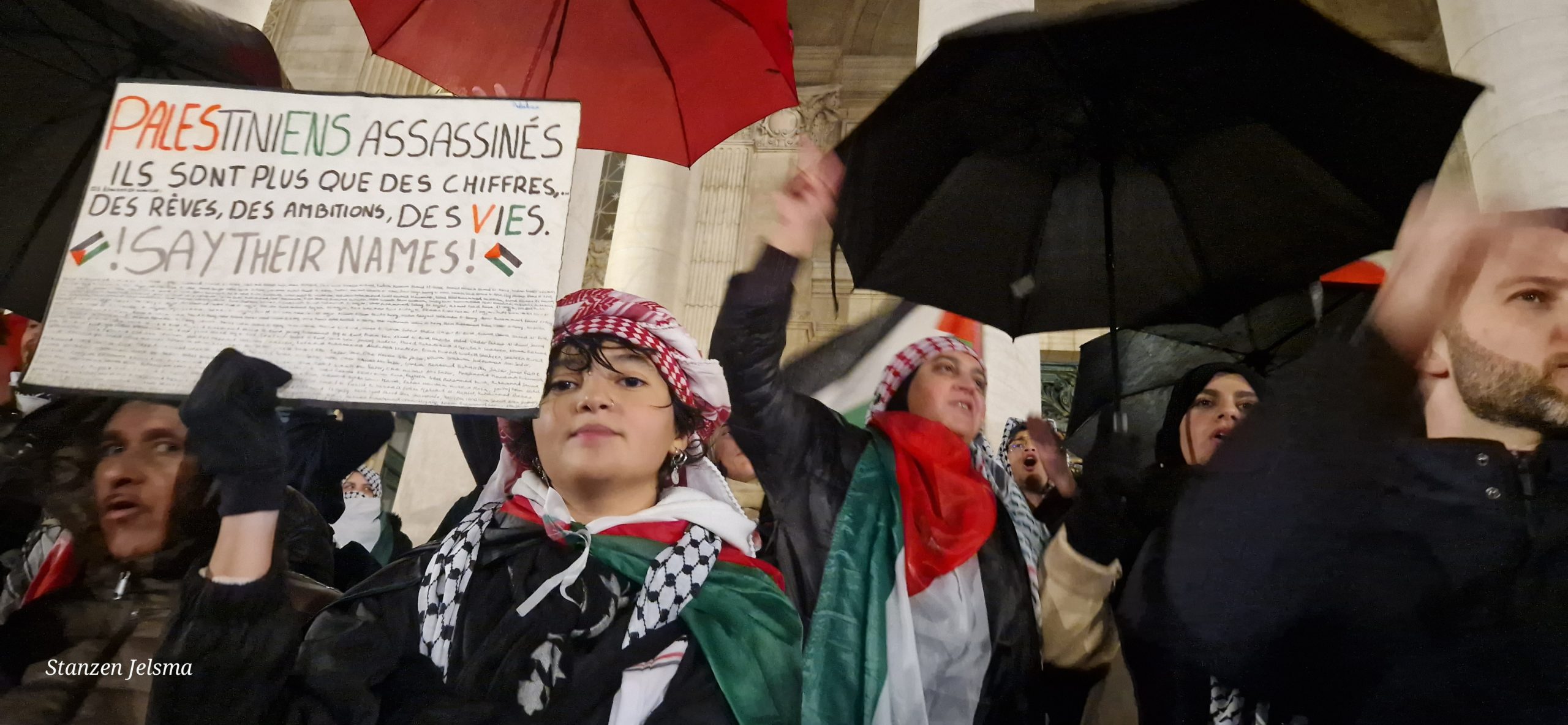
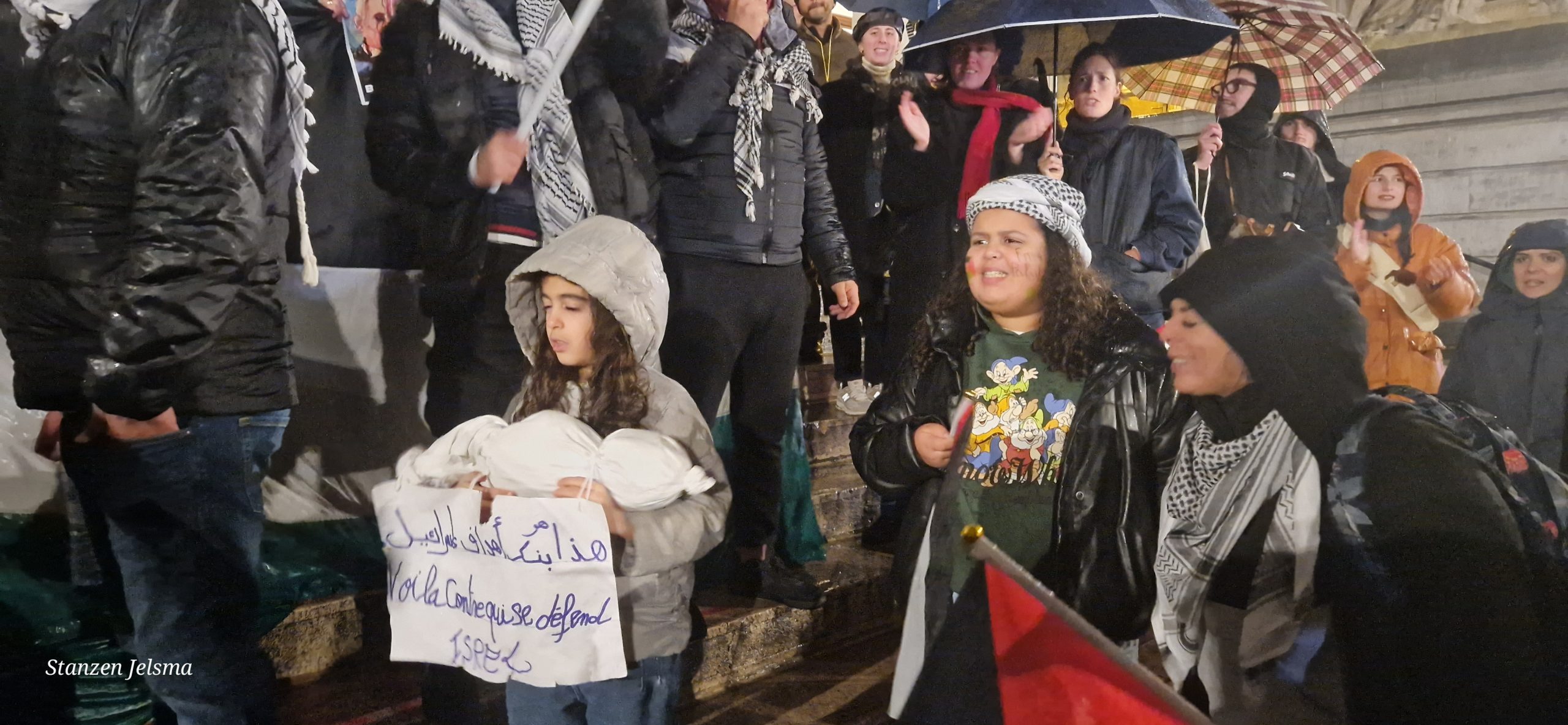
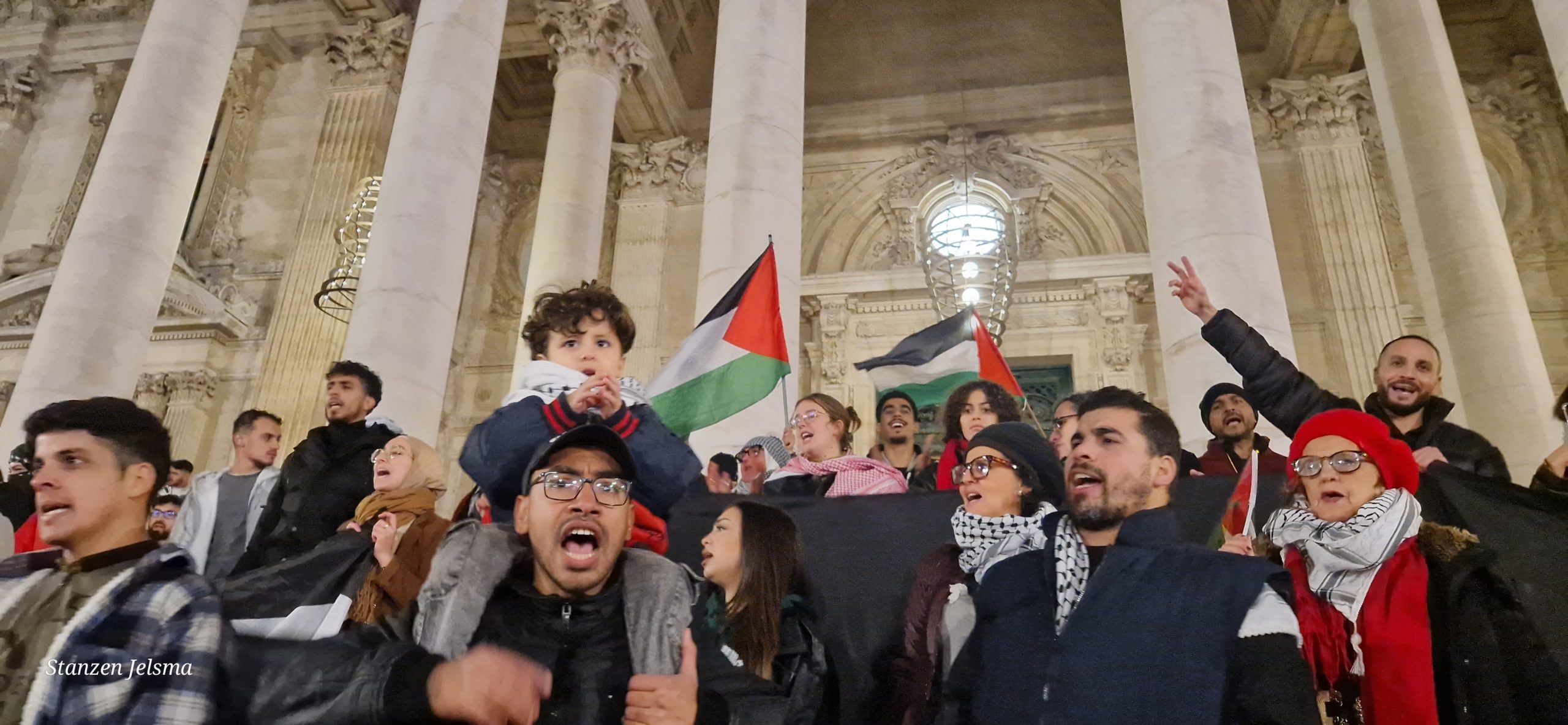
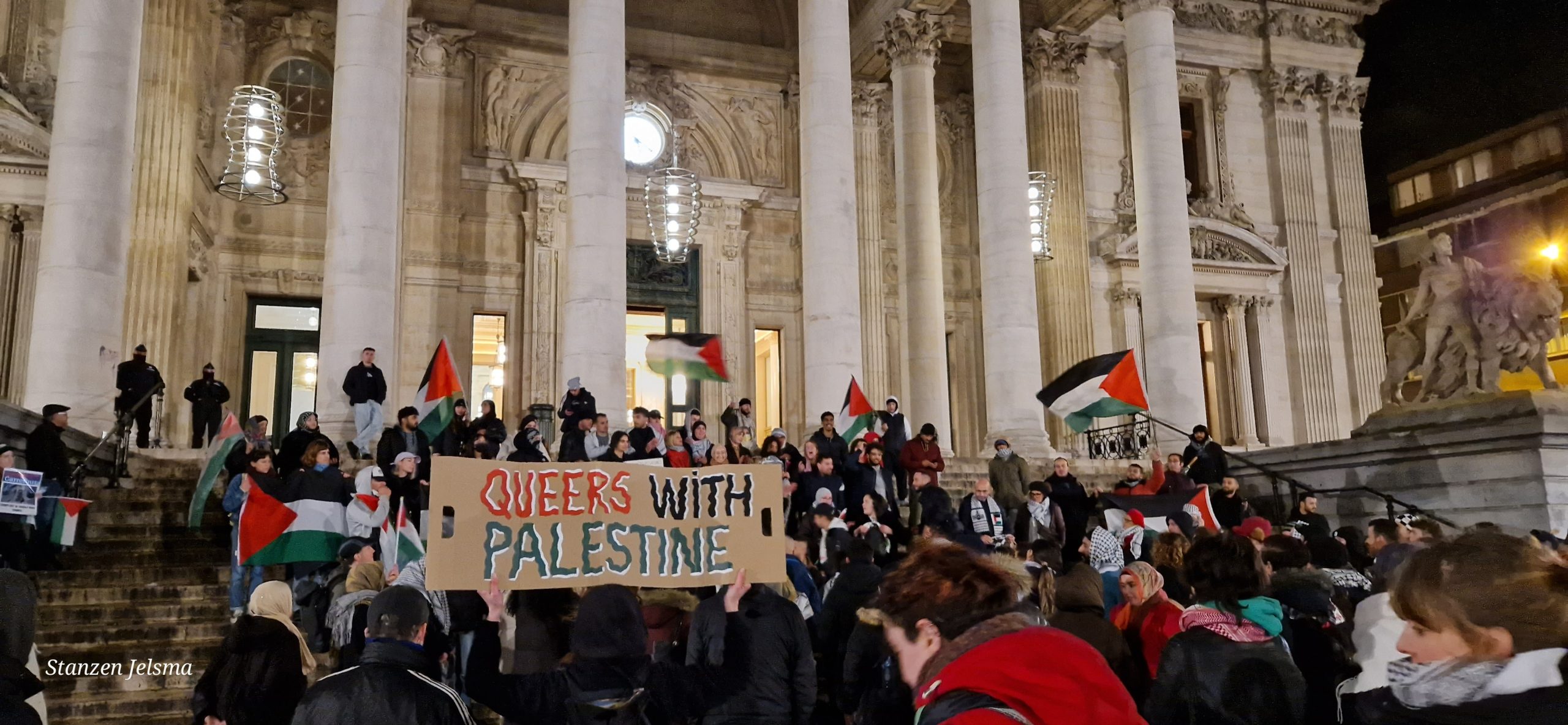
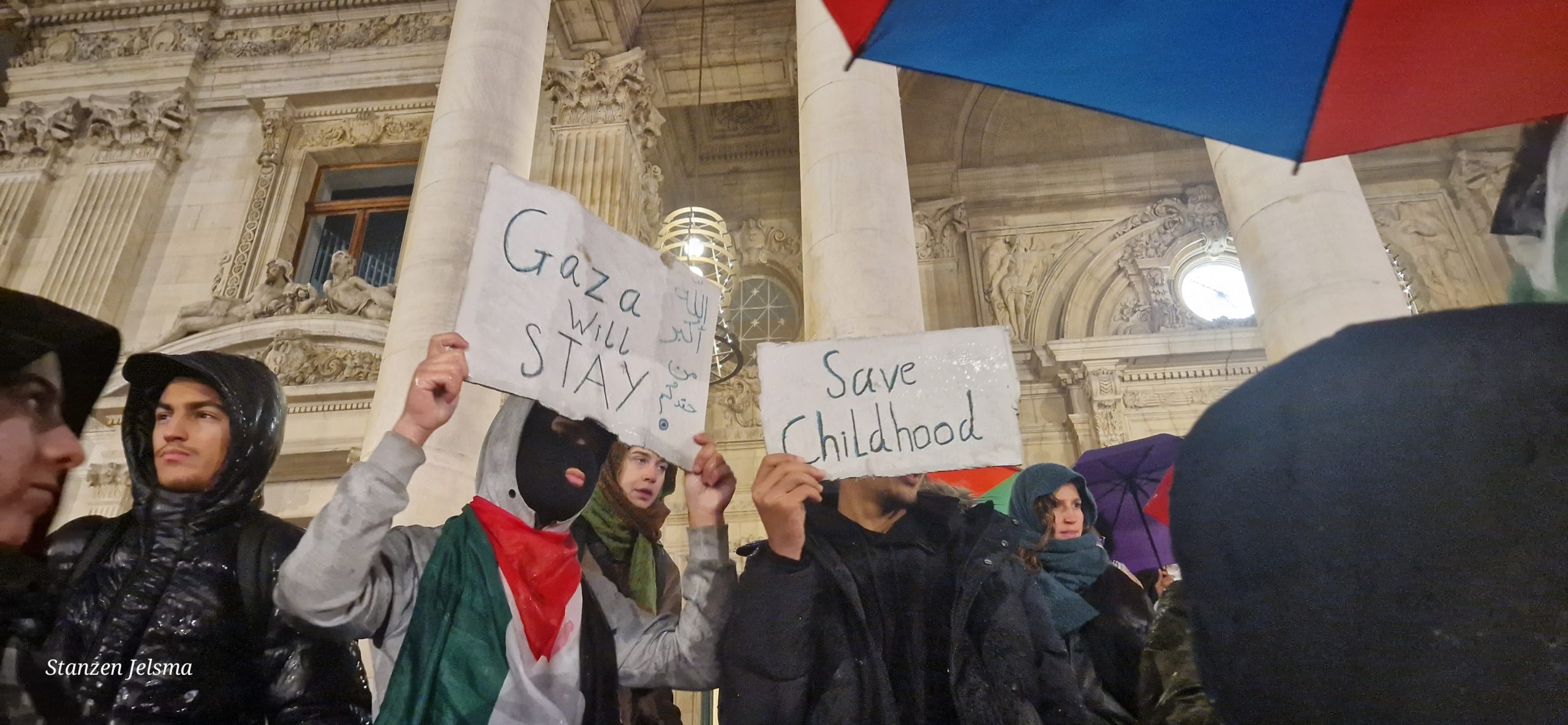
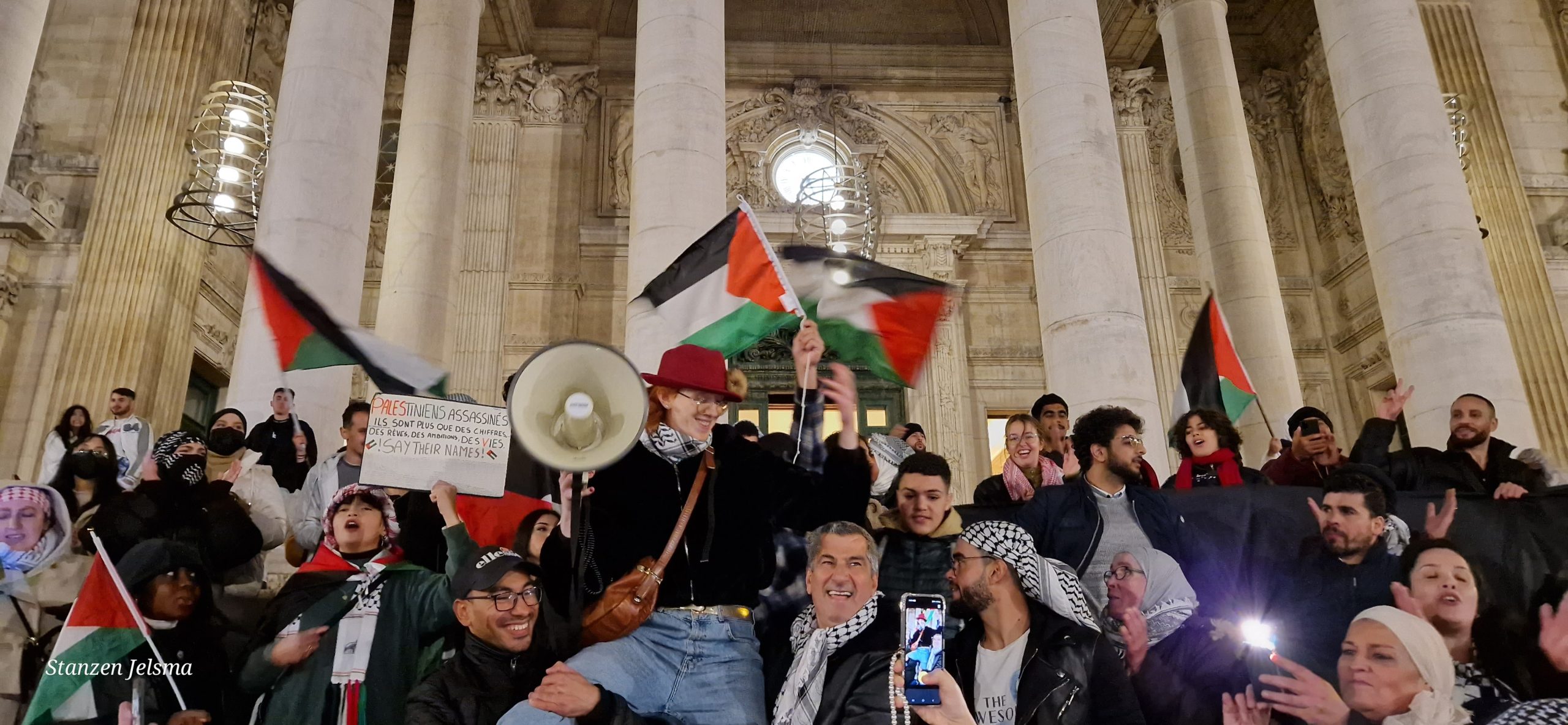
To make the situation in Gaza more visible, pro-Palestinian slogans are being posted throughout the city.
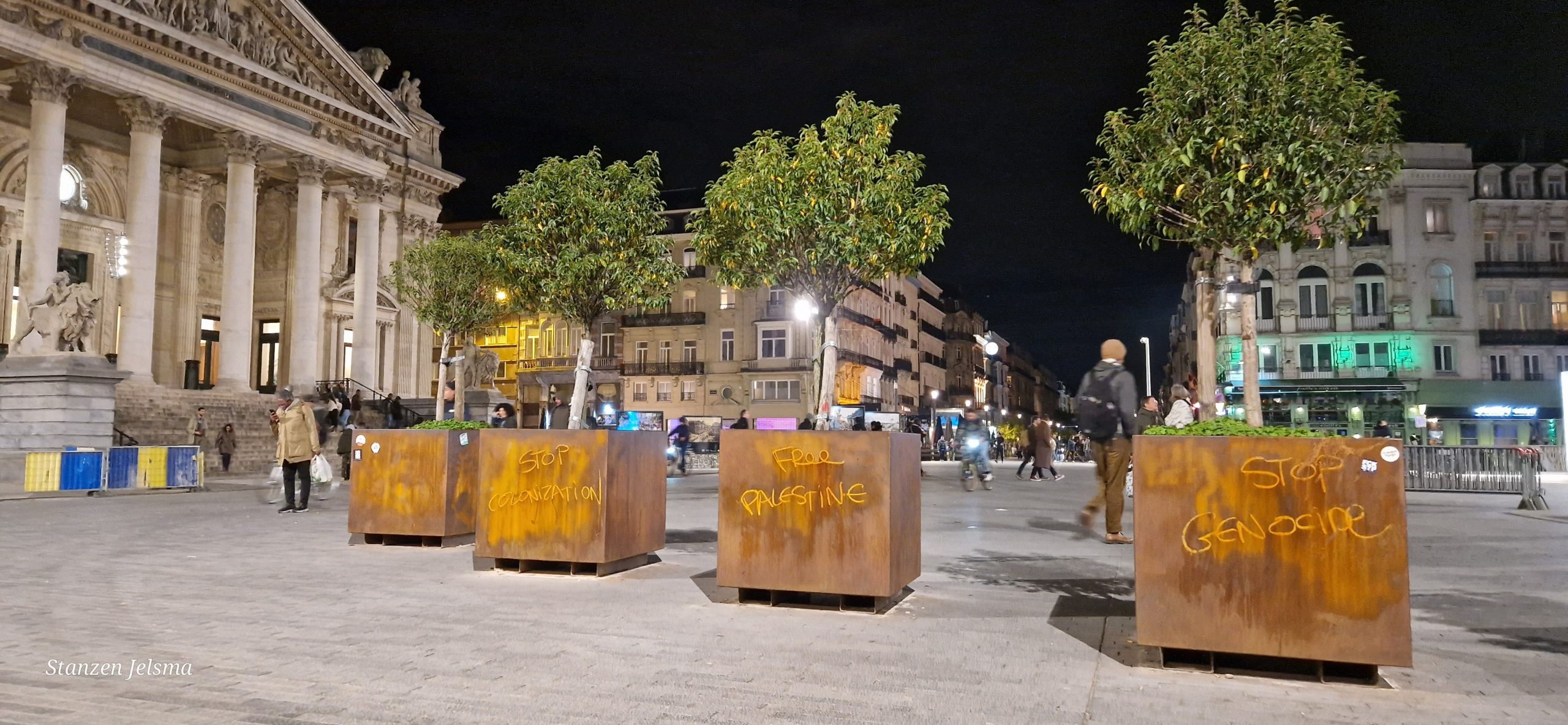
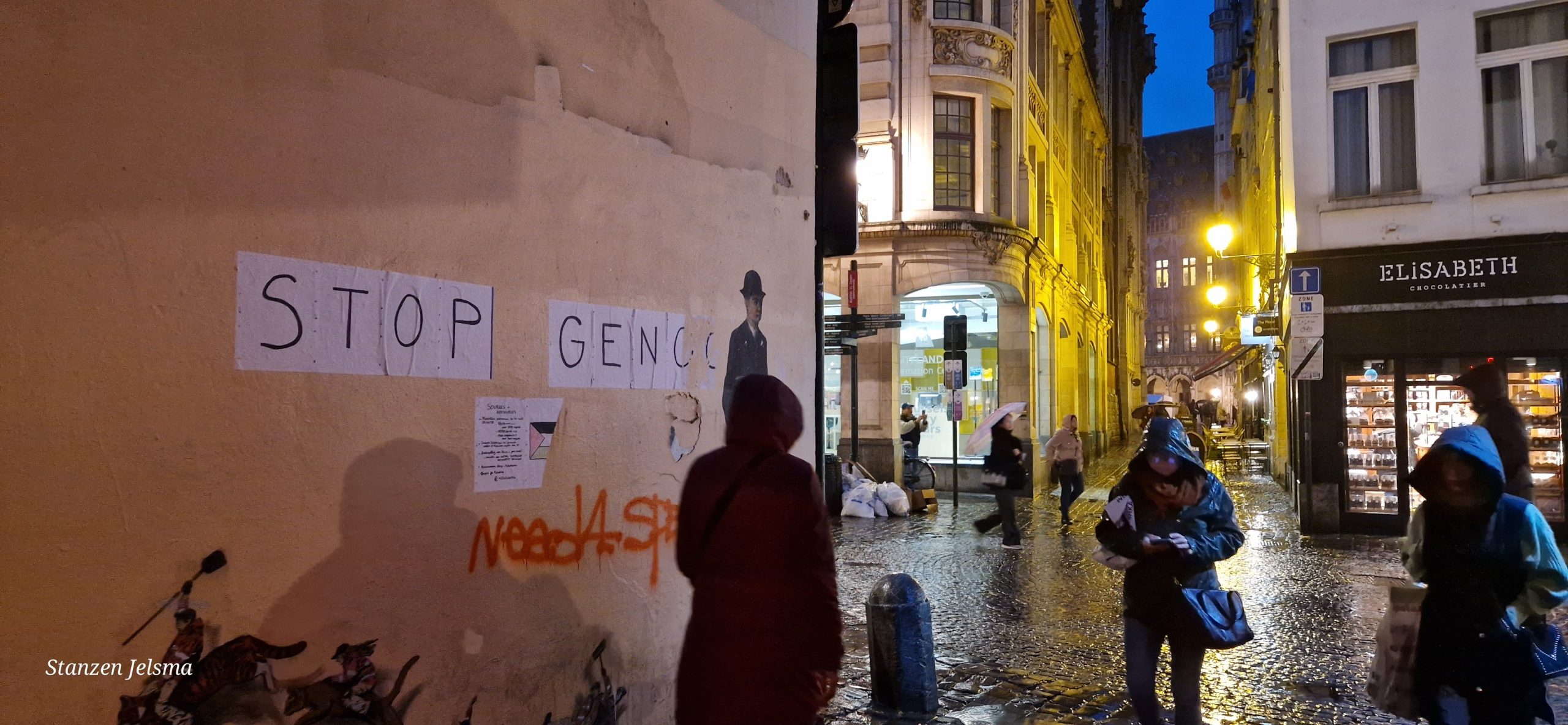
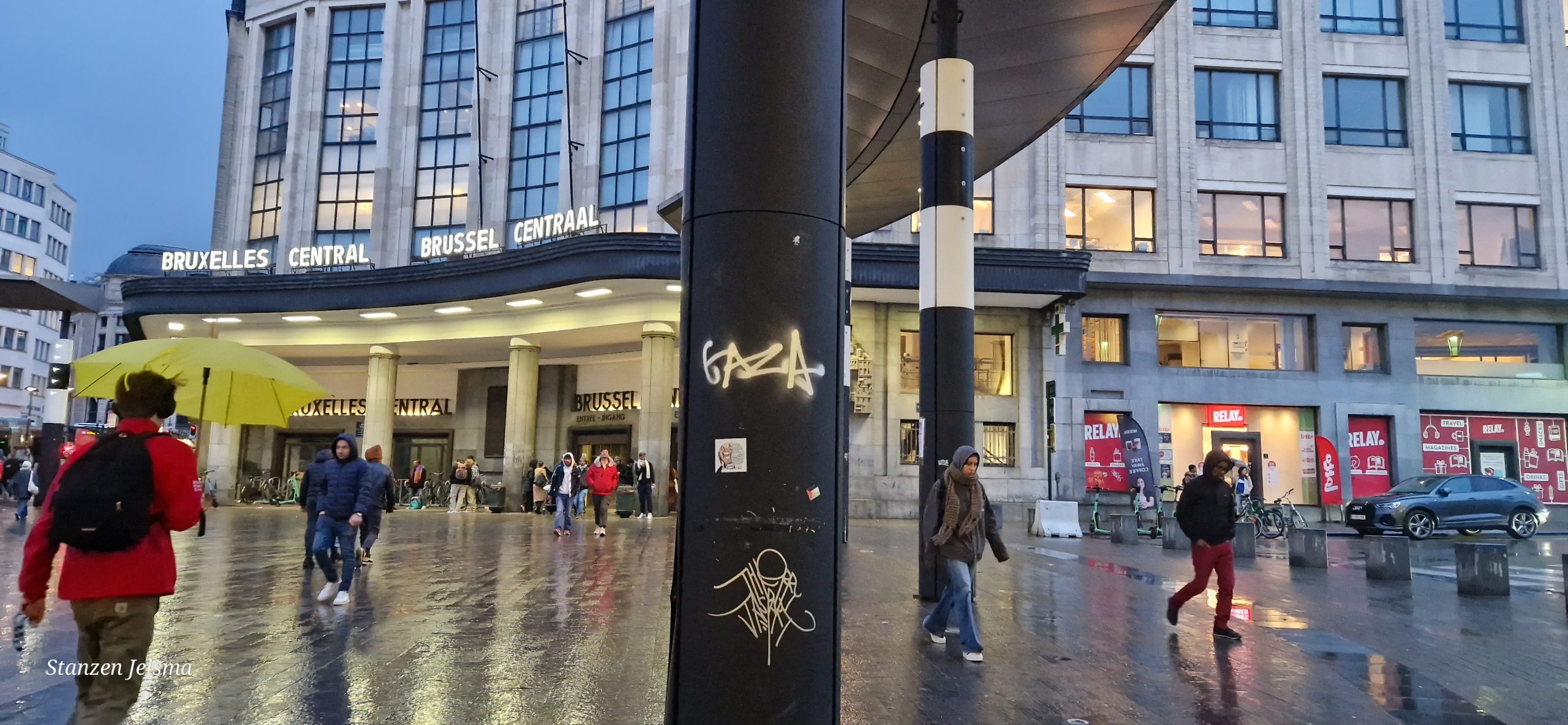
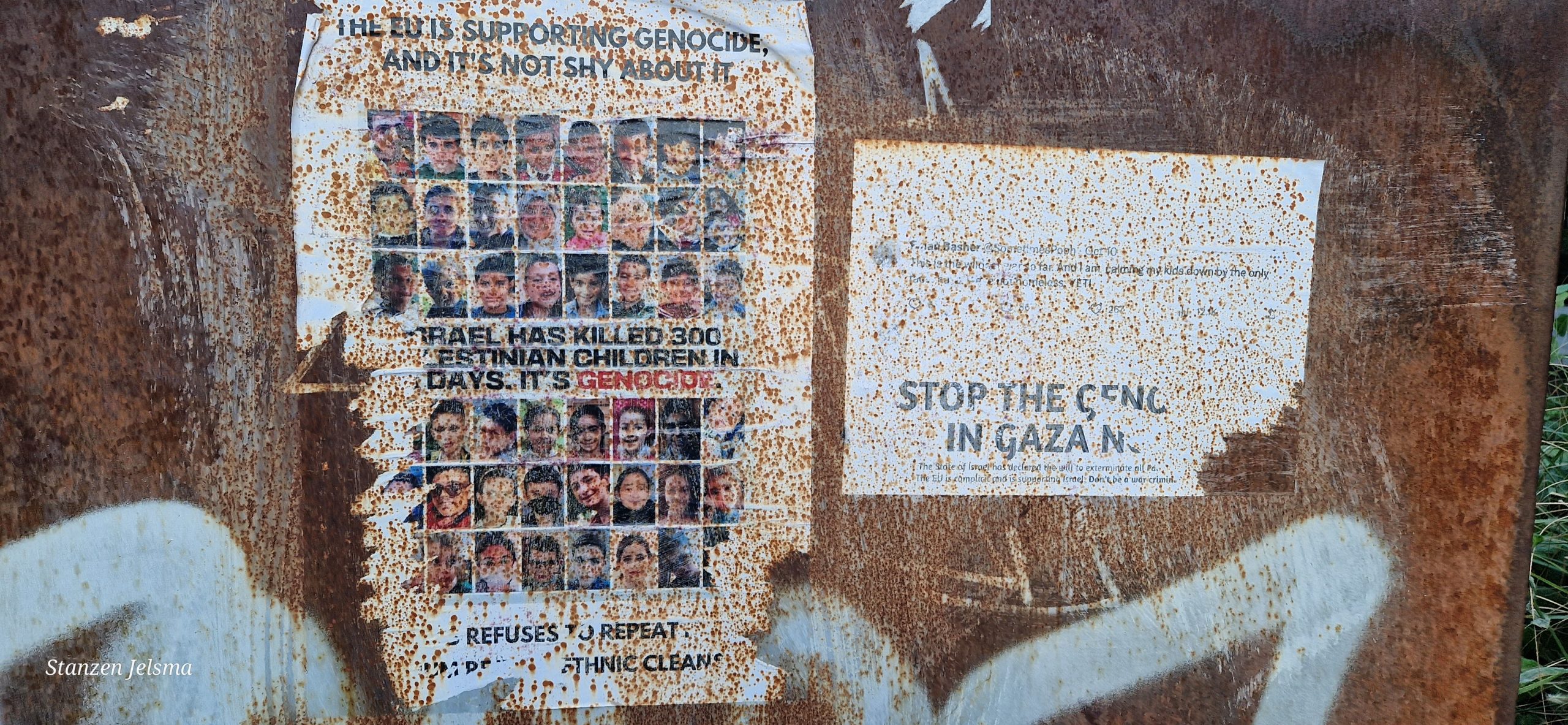
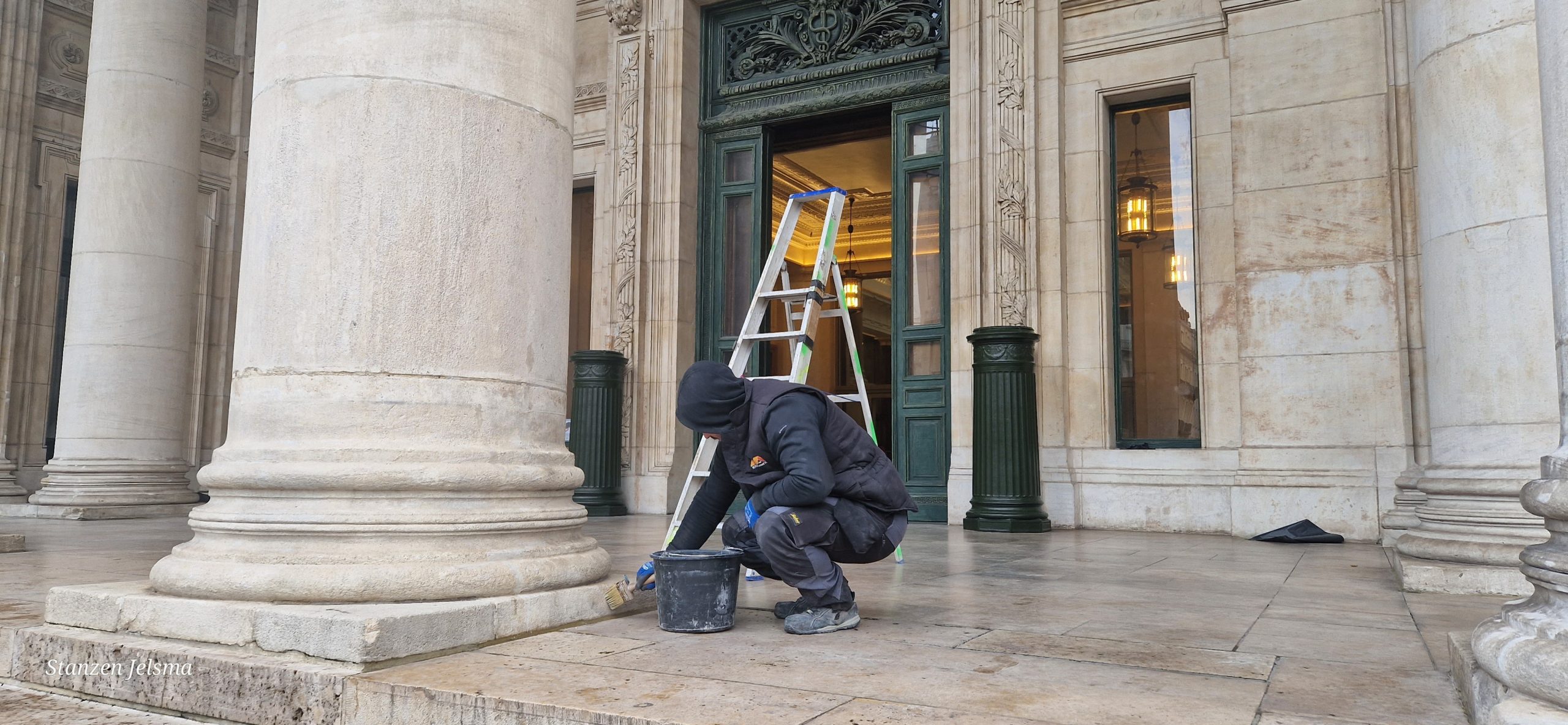
Omar Kream a former Palestinian journalist joins the demonstration frequently: “I hope, by standing here and demanding a ceasefire, politicians who are in charge will feel the urge to change their statements. A little over a year ago, I fled from Gaza myself. The reasons behind this decision were the constant violence, oppression, and ethnic cleansing by Israel. As a former journalist, I was tortured multiple times, leading to frequent relocations within Gaza. Since Israel shut down the internet in Gaza, I have almost no contact with my family. I do not know if they are still alive”.
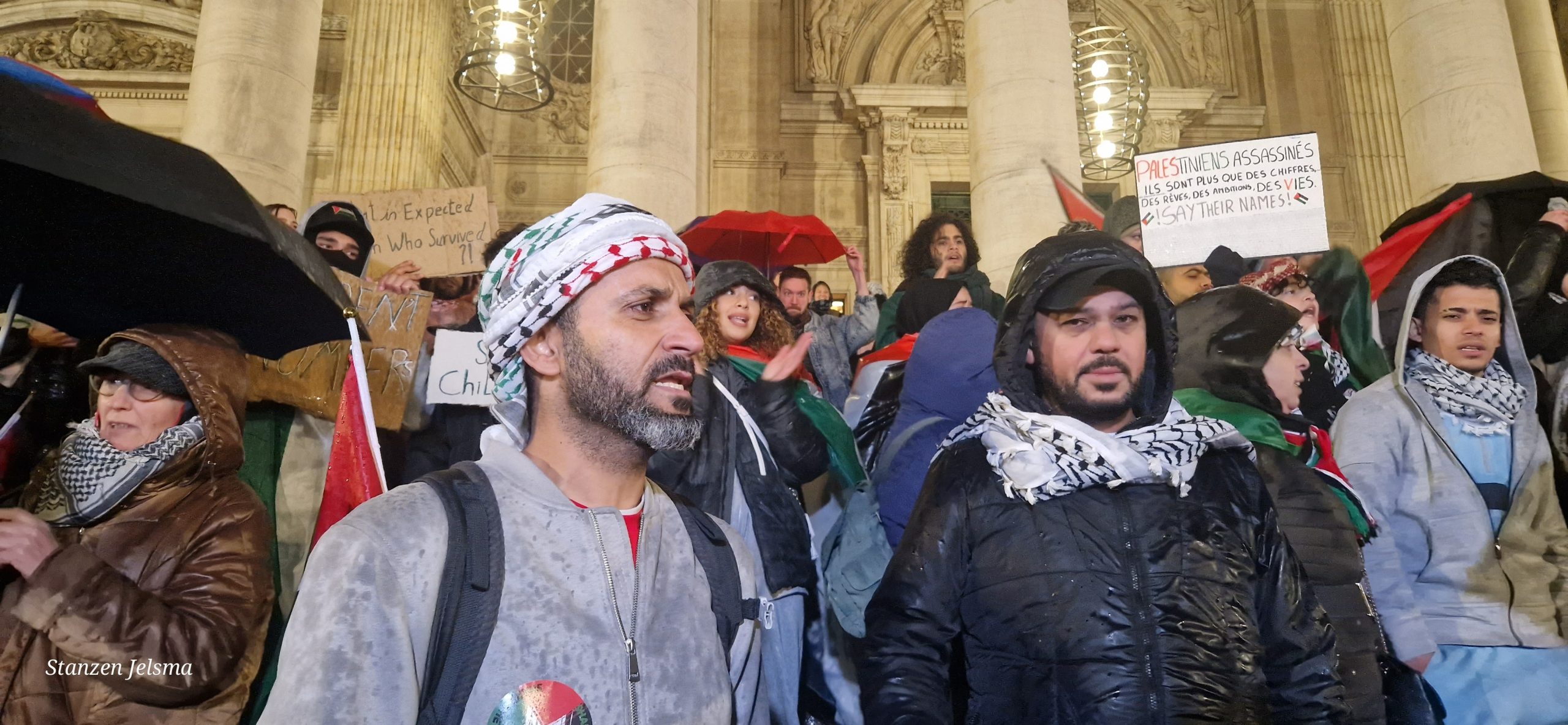
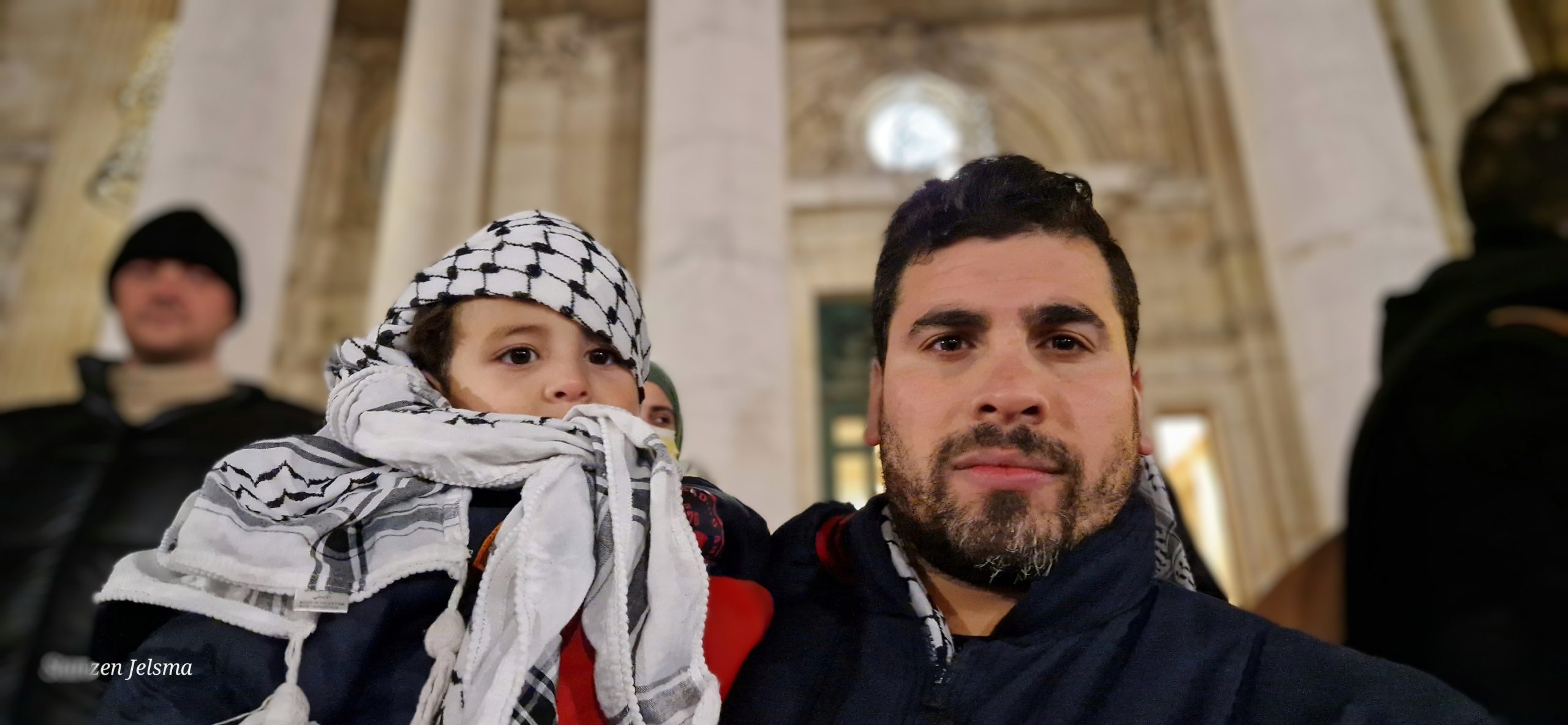
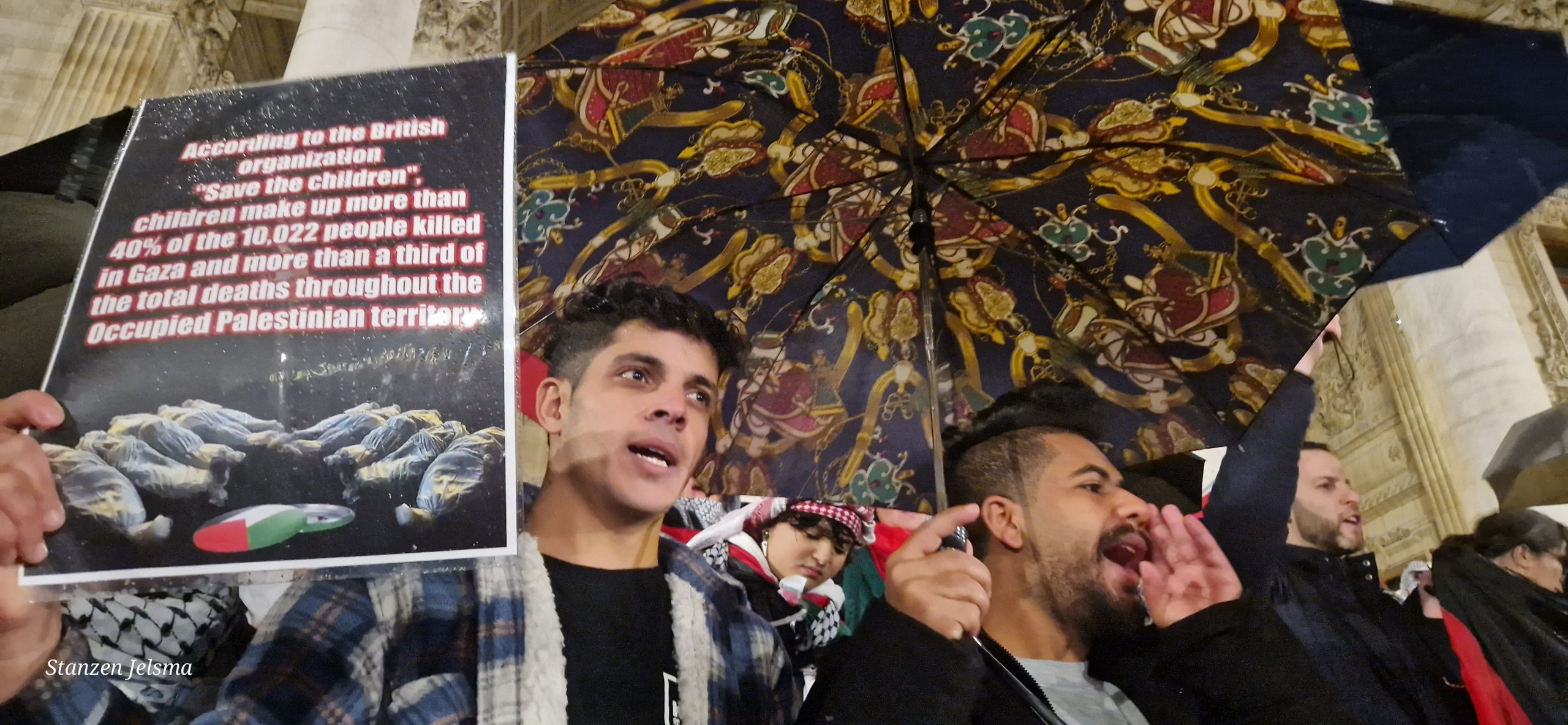
According to Malcontent, the European response seems to be gradually reverting to its pre-October 7 stances. French President Macron recently called for a ceasefire, urging Israel to halt the bombing in Gaza while recognizing its right to self-defense.
